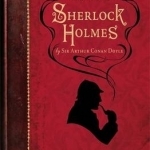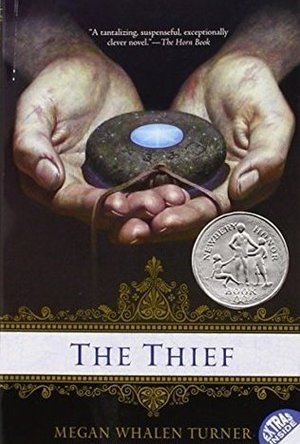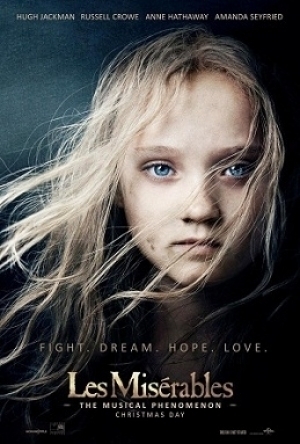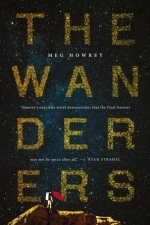
The Penguin Complete Sherlock Holmes
Book
The Penguin Complete Sherlock Holmes by Arthur Conan Doyle are the complete adventures of the...

The Island:Brave Heart
Games and Sports
App
The Island,Man in the Wild,Amazing Adventure.... This is a game about exploring and surviving on a...
Gareth von Kallenbach (980 KP) rated Les Misérables (2012) in Movies
Aug 7, 2019
For years I studied and sang opera. I know music and I’ve sung my fair share of Les Mis pieces in my past. I adore Victor Hugo and “Les Misérables” is by far one of my favorite literary works. When I began to watch this movie, I was keyed up to be critical on the vocal spectrum, the literary aspect, and the representation of one of my favorite Broadway/London pieces. To be frank, I wasn’t disappointed at all.
For those unfamiliar with Hugo’s work or what to expect with Les Mis, let me give you a brief synopsis on its plot and the history of the French revolution in which this takes place. France has just endured her infamous Revolution (the one with the guillotine, Marie-Antoinette, and the Sans Culottes movement) and her people are still suffering. There is no money for food, the country is in the midst of a depression, and the Napoleonic regime is yet to come to fruition. Thus, you find Fantine (Hathaway), a poor but determined (and beautiful) woman trying desperately to make enough money to support her daughter, Cosette, who resides with friends in another city. The book reveals that Madame Thénardier (Bonham-Carter) and her husband, Thénardier (Baron-Cohen) were supposed to be taking the money that Fantine had given to them to provide for her daughter, Cosette. Instead, however, Cosette is forced to live in absolute poverty while Thénardier’s daughter, Eponine, lives the life of opulence. Meanwhile, Jean Valjean (Jackman), an ex-convict, is trying desperately to find legitimate work after his stint in prison for stealing a loaf of bread to provide for his starving family. The infamous policeman, Javert (Crowe), feels Valjean will re-offend and makes it his mission to pursue Valjean until the end.
Finding the world a terrible place as an ex-convict, Valjean seeks to steal from a church her silver, believing he has no other way to survive. It is the love of a good priest, however, who gives Valjean the silver he seeks under the pledge he will become a servant of God and provide for others the same good he has provided for him. Thus, years later, we find Valjean a reformed man (who has skipped on his parole and assumed a new name), running a factory in which Fantine works. And so, when Fantine is fired from her job and takes to a life of prostitution in order to provide for her daughter, it is Valjean who feels the burden of her demise and takes it upon himself to save Cosette and raise her as his own.
Of course, this entire time, Javert is pursuing Valjean and a new revolution is starting to take place amongst Paris’ people. Years later we find Cosette grown to womanhood (now played by Seyfried), and falling in love with one of the revolution’s key players, a youth by the name of Marius (Redmayne). The Thénardiers are back again and we find their once-grand lifestyle has resorted to a life of gutter-crime and Éponine (now played by Barks), is desperately in love with Marius as well (although her love is unrequited). For those unfamiliar with how the story plays out, I will leave it at that.
I will caution those who have never seen this play to prepare for a long show. It is very dramatic and very intense, but visually breath-taking and emotionally moving in so many ways. Vocally, there are times when the legato is lacking and some transitions seemed forced (Crowe struggled many times with allowing his natural vibrato to come through instead of pushing a sustained note; Seyfried’s vibrato is very trill-like and sometimes distracts from the pure quality of her spinto-soprano range). However, I must say that I was blown away by Hathway’s performance (she brought me to tears with “I Dreamed a Dream” due to her emotional rendition) and her ability to truly escape into her character. Similarly, Tviet (he played Enjolras) was stunning with his vocal command and Redmayne was equally as impressive. Jackman will amaze you with his rich tenor and, surprisingly, I found Crowe to have a fantastic baritone when he didn’t force his work. Baron-Cohen and Bonham-Carter provided a much needed comical respite throughout the film (and both sing beautifully as well, although this movie didn’t focus on their vocal command as much). Barks did a lovely job for most of her work; although I found her rendition of “On My Own” a bit forced (she is a true mezzo but seemed to push her high notes, although this may have been where her voice shifted into her head voice which is no fault of her own).
Overall, if you are an avid musical lover and have been waiting for a proper rendition of this production, this movie will astound you. Visually, the movie is breath-taking and the acting is absolutely fantastic. I’m still haunted by the revolutionary song, to be honest. If you’ve been waiting for a musical worthy of the big screen, this one is it. Look for it to sweep the Oscars this year.
This movie deserves an A all around.
Kristy H (1252 KP) rated Into the Water in Books
Jan 10, 2018
It's never easy to follow up a blockbuster like The Girl on the Train - I cannot even imagine the pressure. I didn't adore that book, but I do remember that I basically read it in one sitting. That wasn't the case with INTO THE WATER, though in its defense, I read it during an extremely busy period with work, where I basically collapsed in bed each night to read a few chapters.
This is not a bad book, but it wasn't a great one, either. It's not one that will stay with me. For one thing, much of its plot is predicated around one of my most reviled literary pet peeves: ridiculous miscommunication. You know, that whole thing where if the characters would just talk to each other, as normal folks do, for about 5 minutes, we wouldn't have to go through any of this? Yes. That. So that irritated me to no end.
There are also a lot of points of view in this book. It's not necessarily a bad thing, but it certainly took a while to keep everyone straight. I was glad I was reading this as an actual book, so I could flip back and see whom I'd been reading about earlier. Slogging through those early portions of many characters slowed things down for me and made it harder to get into the story.
As I said, it's not a bad book. I enjoyed reading it. The storyline is fairly interesting, overall, and it held my attention, even when I was pretty tired. I had a pretty decent suspicion of "whodunnit" fairly early on and turned out to be correct, but about halfway through, I was still second-guessing myself and pretty captivated. Nel, Jules, and Lena are intriguing characters, if not fairly frustrating in their lack of ability to talk to one another.
Still, overall, I was left feeling a little deflated by this one. There was no big "gasp" moment for me (perhaps because I had a decent inkling what had happened early on?) like GIRL. It was just a fairly good thriller that kept me entertained for a few days.
Hazel (1853 KP) rated The Wolf Road in Books
Dec 14, 2018
<i>I received this book for free through Goodreads First Reads.</i>
“Any lie can turn into the truth if you believe it long enough.” <i>The Wolf Road</i> is the debut literary thriller by British author Beth Lewis. The post-apocalyptic world is not a very safe place to be, especially for a seven year old during a fierce and dangerous storm. Lost in the woods, a young girl comes across a man who, after naming her Elka, gives her a place to stay for the next ten years of her life. During this time he teaches her how to trap animals, use hunting knives and move silently between the trees – all the vital things needed to survive in the wild. For a long time Elka views this man as a father figure, but on discovering that her beloved Daddy is a serial killer, she realizes she has been living a life of lies.
Desperate to get away from the horrifying realization, Elka runs off deep into the forest with only a hunting knife and the clothes on her back. With nowhere to go, she decides to try and find her birth parents, but although she can easily survive in the wild, she is completely unprepared for the human world. With a childlike innocence, Elka finds herself in trouble on numerous occasions, only feeling at ease once she is back in the woods living the life of wolves. However she soon realizes that she will never be safe no matter how far she travels – not until that murderer is dead himself.
Once you get used to Elka’s colourful dialect, the gripping narrative pulls us into a world with danger around every corner. Elka’s revelation at the beginning of the book seems like a small issue compared with all the trouble she finds herself in later on. The reader will sympathize with Elka as she discovers the evils of man, and admire her strength as well as the development of a conscience after meeting and making her first ever friend. But whilst Elka learns how to walk amongst humans, there is a foreboding sense of doom as evilness keeps her within its sights.
<i>The Wolf Road</i> is a great post-apocalyptic story with a strong protagonist. At times it takes on a similar theme to a western novel, with guns, gold mining, and violence; but it is essentially a thriller built up of lies that are gradually unpicked. There is no psychological element to the book, thus nothing to try and work out for yourself. You simply need to read and discover what happens. As a result this book is the kind you will either love or hate. Some people may find it disturbing or gruesome, whereas others may find it exciting and enjoy reading about the unique main character.
Personally I think <i>The Wolf Road</i> is a great, original piece of work, and it only loses stars because I found a few parts a bit too grisly. Beth Lewis writes well and it cannot have been easy to keep the dialect up for the entire novel. This is an author who definitely has promise for the future.
Hazel (1853 KP) rated The Wanderers in Books
Dec 17, 2018
“As they look to the stars, what are they missing back home?” </i>In a handful of year’s time, it can be presumed that dreams of humans on Mars will become closer to a reality. In Meg Howey’s <i>The Wanderers</i>, the time has come to select the potential candidates to participate in the first crewed mission to the Red Planet. Yet, as the astronauts prepare to walk among the stars, their families are left to consider a life without them.
The story is told through the perspectives of seven characters. Perhaps the most important are the three astronauts: Helen, Sergei and Yoshi, who are enclosed in a tiny mock-spacecraft, as they practice the hypothetical challenges and experiences they may encounter on a real trip to Mars. The remaining chapters are shared out amongst family members: Mireille, Helen’s adult daughter; Dmitri, Sergei’s fifteen-year old son; and Madoka, Yoshi’s wife – the final character being Luke, a psychiatrist tasked with observing the mental state of the astronauts throughout the experiment.
Interestingly, those being left behind are less concerned about their parent or spouse, choosing to focus on their own, everyday life, problems. Left to their own devices, they worry about their careers, their sexuality and the ways in which others perceive them. All, presumably as a result of the lack of contact with their significant family member, have become capable of surviving independently, however do not appear to realize how lonely they are.
The astronauts, on the other hand, are preoccupied with thoughts of space, concentrating so hard on the mission ahead of them that they fail to think of anything else. However, after months of only having each other for company, their thoughts begin to drift in the direction of home, their childhood, worries about their family, guilt – all notions that are fairly alien to the career driven characters.
Whilst it is interesting to witness the character developments, there is not a significant storyline. The book only encompasses the training period for the prospective space mission, and does not appear to have a substantial conclusion. Whether the astronauts eventually make it to Mars, and whether their consciences encourage them to behave differently towards their families, remains unknown.
<i>The Wanderers</i> has the essence of a work of fiction that English Literature students or professors would enjoy pulling apart, examining the language and literary techniques as they seek the understanding of the various emotions portrayed. Unfortunately, the majority will not have chosen to read this book for this precise purpose, expecting a science fiction novel full of excitement and interesting plot. Without either of these elements taking precedence, many are bound to be disappointed.
My rating for this book (two of five stars) is on the basis of the storyline, rather than the concept of family versus space. Yes, Howey writes well, is informed of the ins and outs of space programmes, and is knowledgeable enough to write an accurate representation of an astronaut’s experience, however as a form of entertainment, it is considerably lacking. Those expecting a narrative similar to other well-written science fiction novels will be sorely disappointed.

Nighty Night! - The bedtime story app for children
Book and Education
App
The most popular bedtime story on the App Store! Over 4 million downloads. „App of Year“...

Nighty Night! - The bedtime story app
Book and Education
App
The most popular bedtime story on the App Store! Over 4 million downloads. „App of Year“...

The Thief (The Queen's Thief #1)
Book
Discover the world of the Queen's Thief New York Times-bestselling author Megan Whalen Turner's...




